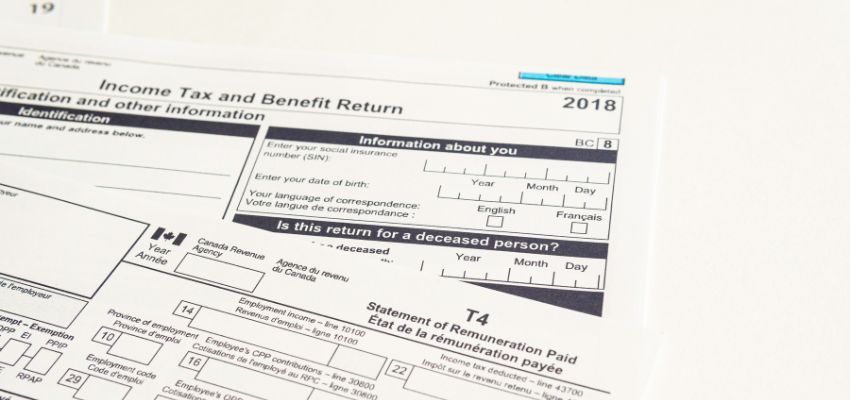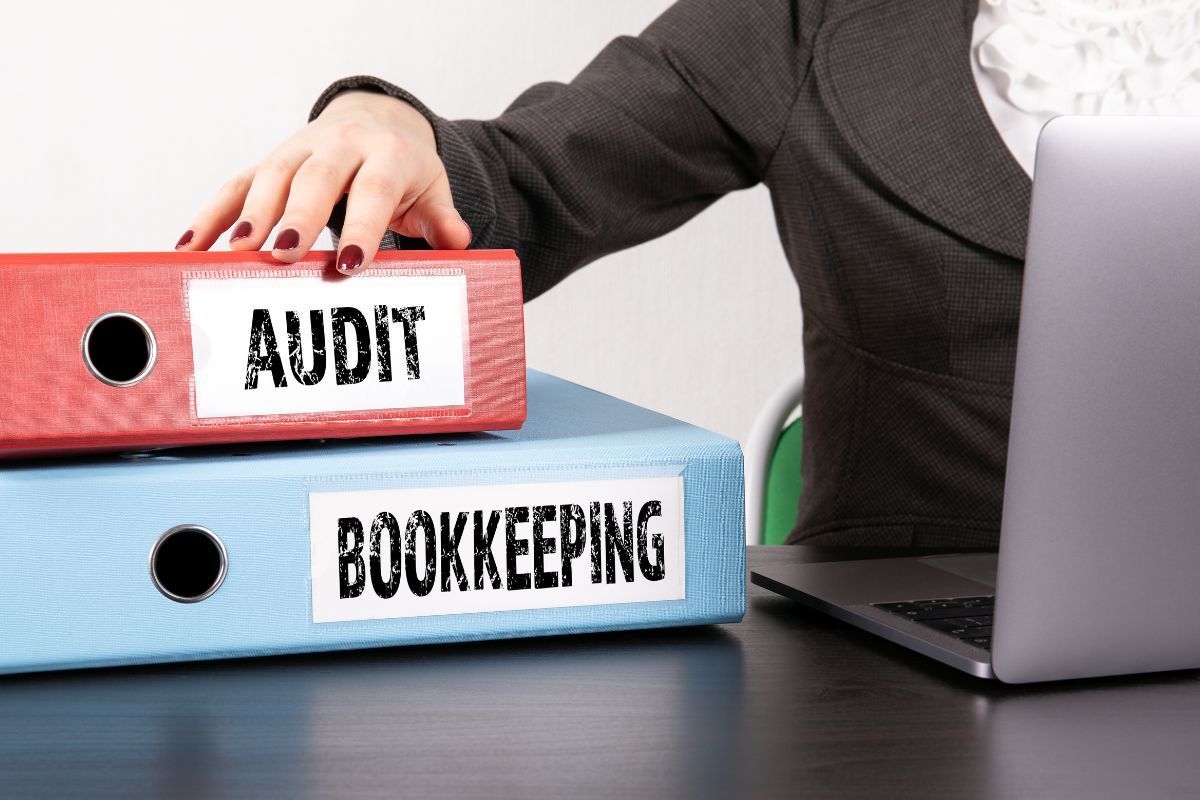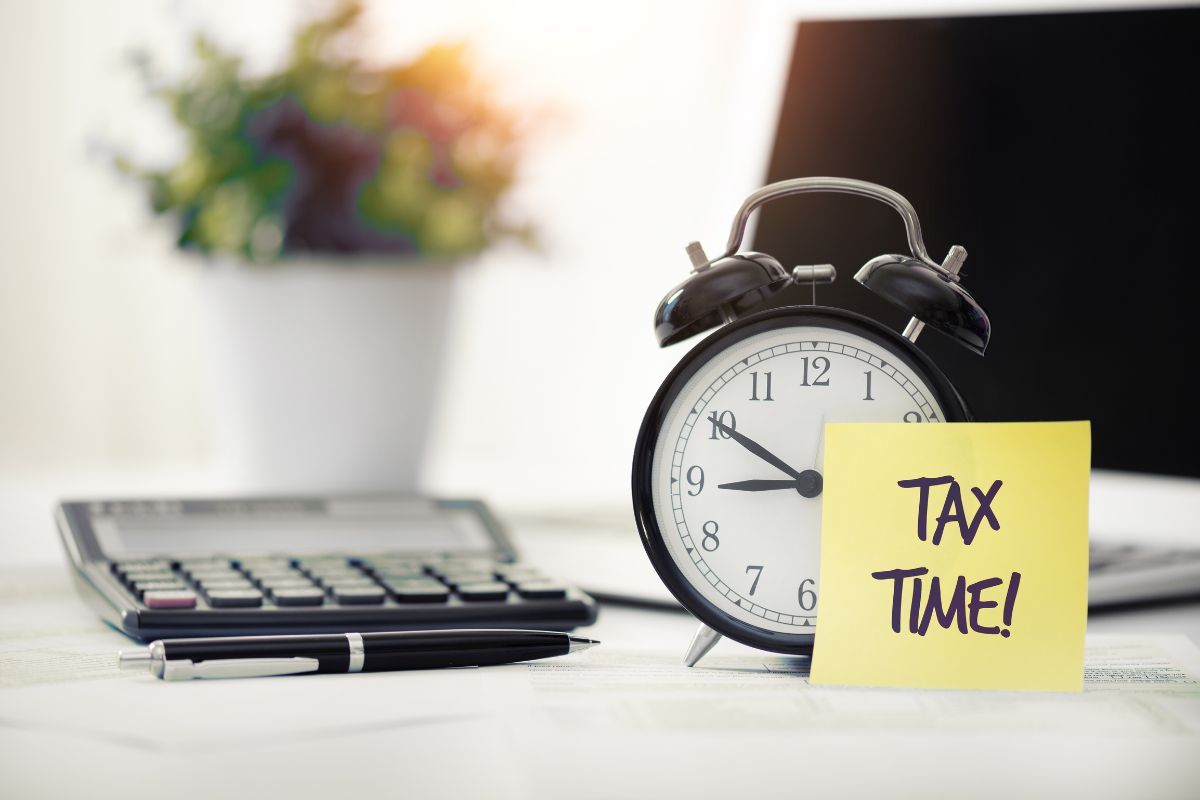Personal Tax Preparation: Everything You Need To Know
Feeling overwhelmed by the thought of personal tax preparation in Canada? You're not alone. Tax season can be stressful, but missing deadlines or overlooking benefits could cost you. However, personal tax preparation doesn't have to be daunting if you know the proper steps and information. Let's ensure you file on time, avoid penalties, and get the most out of your tax return.
In this article, we'll explore the key aspects of personal tax preparation in Canada. Discover the essentials of tax filing, including who is required to file, the documents you'll need, and expert advice for a stress-free tax season.
Understanding Personal Taxes In Canada
Personal taxes in Canada can feel overwhelming, but familiarity with the basics is crucial to managing your finances. Knowing income tax brackets, credits, and deductions can help you maximize returns and stay compliant. Let's break it down!
What Is Personal Tax Preparation?
Personal tax preparation involves organizing financial records, reviewing income sources, and completing forms, which are necessary to file a tax return.
This step is crucial for reporting your earnings, credits, and deductions to the Canada Revenue Agency (CRA). The CRA determines whether you owe taxes or qualify for a refund, ensuring your finances are accurately accounted for each year.
Important Tax Filing Deadlines
In Canada, the deadline for most individuals to file their income taxes is April 30. If you or your spouse/common-law partner are currently self-employed, you have until June 15 to submit your return.
However, all taxes must be paid by April 30 to avoid any interest. Missing these deadlines could result in late filing penalties, so mark your calendar and plan to stay on track.
Who Needs To File?
If you earned income this year or wish to claim benefits such as the Canada Child Benefit or the GST/HST credit, filing a tax return is essential. This applies to residents, Canadian citizens, newcomers, and non-residents. It includes anyone who has earned income in Canada.
Must-Have Documents For Tax Filing
Gather all necessary documents first. This ensures accurate reporting. It also helps maximize your deductions.
Use this checklist to stay organized:
- Income Slips. Collect forms like T4 (employment income), T4A (pension or self-employment income), T5 (investment income), and any others relevant to your income sources.
- Receipts for Deductible Expenses. Keep receipts for medical expenses, charitable donations, childcare costs, and other eligible deductions.
- Registered Retirement Savings Plan (RRSP) Contribution Slips. These are essential for claiming deductions tied to your registered retirement savings plan.
- Investment Statements. Include documents detailing dividends, capital gains, or any investment income.
- Notice of Assessment (NOA). Refer to your NOA from the previous tax year for key information, such as your RRSP contribution limit.
Having these documents ready will simplify the tax filing process and help you secure the refund you deserve.

Understanding Income Sources And Taxable Income In Canada
In Canada, taxable income is the foundation for determining the taxes you owe. It encompasses a variety of earnings from different sources.
Here's a breakdown of the most common types of income:
- Employment Income. Wages, salaries, and tips earned through traditional employment.
- Self-Employment or Freelance Income. Income generated from running a business, freelancing, or gig work.
- Rental Income. Earnings from leasing or renting out property.
- Investment Income. Profits from dividends, interest, or capital gains.
- Government Benefits. Payments such as the Employment Insurance (EI), Canada Pension Plan (CPP), or Old Age Security (OAS).
It's essential to report each income source accurately to ensure your records align with those of the CRA. Accurate reporting helps you stay compliant and avoid discrepancies.
Common Tax Deductions And Credits In Canada
Leveraging tax deductions and credits is a smart course to lower your taxable income and lessen your overall tax burden.
Here are some of the most commonly claimed deductions and credits available to Canadians:
- RRSP Contributions. The contributions you make to the Registered Retirement Savings Plan (RRSP) can minimize your taxable income while assisting you in saving for retirement.
- Home Office Expenses. If you're self-employed or work remotely, you can claim expenses like utilities, internet, and rent for your home office.
- Medical Expenses. Many healthcare costs can be deducted. This includes prescription medications and dental care.
- Tuition Credits. Post-secondary students can claim tuition fees. This helps reduce their taxes and makes education more affordable.
- Charitable Donations. Donations to registered charities can earn you valuable tax credits and encourage generosity.
- Childcare Expenses. Babysitting, daycare, and after-school program costs may be tax-deductible, which can help reduce parents' financial stress.
- Moving Expenses. If you moved to start a new job or attend school, you may qualify to claim certain moving-related costs.
Determining which deductions and credits apply to you can save you hundreds or even thousands during tax season. Explore your options to maximize savings.
How To Choose The Best Tax Preparation Method
Filing taxes doesn't have to be stressful. Select a method based on your comfort level. Consider your budget and how complex your finances are.
Here are three main options to consider:
Do-It-Yourself With Tax Software
Online tools simplify the process with step-by-step guidance, making them convenient for straightforward returns. Many of these programs are affordable, and some even offer free plans for essential filings.
Hire A Professional Accountant
For complex tax situations, expert help is key. Self-employed or have multiple income sources? A professional tax accountant can assist such as AdilCPA. A reliable provider of personal tax preparation services ensures accuracy, minimizes stress, and can help you maximize deductions.
Visit A Free Tax Clinic
Low-income individuals can utilize free tax clinics run by community organizations. Staffed by trained volunteers, these clinics are reliable resources for completing simple returns at no cost.
Choose the method that best aligns with your needs and financial circumstances to make tax season as hassle-free as possible!
Avoid These Common Tax Filing Mistakes
Filing your taxes accurately can save you time, stress, and money.
Here are some common errors to steer clear of:
- Missing the filing deadline can lead to unnecessary penalties and fees.
- Failing to report all income sources. This includes freelance earnings and investment returns.
- Failing to claim eligible deductions and credits potentially leaves money on the table.
- Claiming ineligible expenses could raise red flags. Calculation errors may also attract attention from tax authorities.
- Not maintaining proper records is a misstep that can cause complications during audits.
Avoiding these pitfalls can maintain a smoother and more efficient tax season.
What To Expect After Filing
After submitting your return, the CRA will assess it and release a Notice of Assessment (NOA). This document will confirm whether you owe additional taxes or are eligible for a refund. To stay updated, you can monitor the status of your return using the CRA's My Account online service.
If you owe taxes, payment is simple with options like online banking or installment plans. Anticipating a refund? Enroll in direct deposit to receive it quickly and securely in your bank account.
CRA Audits And Reassessments
While audits are uncommon for most individuals, they can still occur. The CRA may request that your records be reviewed if they detect discrepancies in your tax return.
Responding promptly and providing the required documentation is essential when you receive an audit request. Additionally, if you discover errors in a previously filed return, you can correct them using the adjustment request feature in your CRA My Account.
Tips For A Stress-Free Tax Filing Season
Tax season doesn't have to be overwhelming. These practical measures can help make the process smoother and more efficient:
- Stay Organized All Year. Keep your receipts, income slips, and tax documents in one secure, easy-to-access place. Use folders or digital tools to stay organized and ready for tax filing.
- Leverage the CRA's My Account. The CRA's My Account platform helps you access notices, retrieve documents, view your tax history, and track refunds. Use it to simplify your filing experience.
- Start Filing Early. Start in advance to avoid the hassle of last-minute deadlines. Filing ahead gives you time to check your information, find deductions or credits, and resolve any issues without pressure.
By preparing ahead and adopting these strategies, you can simplify and make the tax filing process far less stressful!
Frequently Asked Questions
Do I need to file a tax return if I have no income?
Even if you have no income, filing a tax return is still a smart move. It allows you to access benefits and credits like the GST/HST credit or the Canada Child Benefit.
How can I determine if I'm eligible for a tax refund in Canada?
You can get a tax refund if you pay more taxes than you owe. This happens after deductions and credits are applied.
What is NETFILE, and how does it work?
NETFILE is a secure online filing service from the CRA. It allows Canadians to submit their tax returns electronically. It's fast, reliable, and often ensures quicker refund processing than paper filing.
What if I discover a mistake on my tax return after submitting it?
You can request an adjustment if you spot an error after filing your return. Use the CRA's "My Account" portal or submit a T1 Adjustment Request form (T1-ADJ).
What are the consequences of missing the tax filing deadline?
If you miss the deadline and owe taxes, the CRA may impose penalties and charge interest on the outstanding amount. Filing your return on time is crucial to avoid these extra costs.

Master Personal Tax Preparation For A Stress-Free Filing
Personal tax preparation doesn't have to be overwhelming. You can take control of your taxes by understanding the process, organizing your documents, and taking advantage of available deductions. Whether you handle personal tax preparation independently, work with a professional, or visit a tax clinic, planning and staying informed will make the process smoother. With the right approach, you can tackle tax season confidently.
Want more information?
Richmond Hill, ON
Calgary, AB
Vancouver, BC
Ottawa, ON
Winnipeg, MB
Hamilton, ON
Halifax, NS
Mississauga, ON
Toronto, ON
Brampton, ON
Oakville, ON
Milton, ON
Markham, ON
Vaughan, ON



